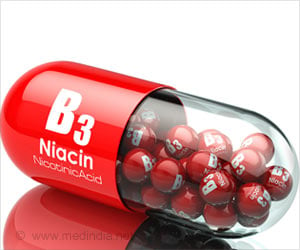Reports of patients with long-COVID who were helped by Paxlovid often have a bitter, metallic taste called paxlovid mouth after taking COVID-19 medication.

A Pfizer representative told Health that most cases of Paxlovit’s mouth or dysgeusia were "mild" and "ineffective" and that only two participants had completed the drug test prematurely. But as more and more people start taking drugs for COVID-19, they are taking their stories to social media.
Twitter user @AlisaValdesRod1 wrote, "It has been only hours since my [first] dose of Paxlovid, but it’s doing something." "Strong weird metallic grapefruit taste in mouth, but tightness in my chest is GONE and I can take a deep breath." Call it "total" or ask for dietary recommendations that obscure the "terribly bitter metallic" taste.
That bad taste in the mouth — technically called dysgeusia — is not necessarily a common side effect of Paxlovid, but it does happen. According to the data from Pfizer’s clinical trials, about 6% of participants in the Paxlovit group experienced altered taste. Compared with less than 1% of those in the placebo group.
TOP INSIGHT
Bad taste in the mouth — technically called dysgeusia — is not necessarily a common side effect of Paxlovid, but it does happen.
Dysgeusia and its Causes
In addition to direct damage to the tongue and mouth, dysgeusia can be caused by a number of factors: infection or disease, medications, or damage to the central nervous system.Infection or Disease
Alterations in taste have been reported after influenza infection, in hay fever, diabetes, heart disease, and others.
Today, one of the most frequent causes of dysgeusia is COVID-19 infections, with loss of taste one of the first symptoms many people experience. Research suggests that dysgeusia occurs in between 33% and 50% of people with COVID-19, though less so with newer variants. It is also reported as a lingering symptom of long-COVID.
The reason why COVID or other infections cause dysgeusia is still unknown. Some recent theories have suggested that how the SARS-CoV-2 virus that causes COVID-19 triggers an inflammatory response by binding to receptors in the mouth. This might cause changes in the taste buds.
Injury
Loss of taste can damage the nerves and the brain pathways involved in sense of taste.
This may be due to lesions in the nerves or brain tissue or loss of the fatty mucous membrane, which helps to isolate the pathways used for the taste signal. In rare cases, dyskinesia may also be due to brain tumors.
Medications
Dysgeusia is a known side effect for taking medications for several diseases like Parkinson’s disease, epilepsy, and HIV.
How Dysgeusia Affects the COVID-19 Patients
Paxlovid is a combination of two drugs — nirmatrelvir and ridonavir — used together to treat mild to moderate COVID-19. This drug is approved for emergency use in people 12 years of age or younger weighing at least 88 pounds, tested positive for COVID-19 and at high risk for serious illness.
The drug is prescription-only and should be used as soon as possible after the diagnosis of COVID-19 — within five days of the onset of symptoms.
Dysgeusia is described as a bitter, metallic, or sour taste in the mouth. But what exactly is it, and what’s going on in the body when it happens?
The bad taste that can come with Paxlovid may be the result of two things at work. First: "Both of the drugs in Paxlovit are bitter," said Assoc. Prof. Jamie Allen, PhD at Michigan State University. As a result, it becomes bitter when you take it.
As for the persistent bad taste, the drug can be left in the mouth, it may be excreted in the salivary glands, Allen told — this is a process that happens in other medicines, including IV saline solutions, and it is not unique to Paxlovit.
According to Omid Mehtisade, MD, an otolaryngologist and laryngologist at the Providence St. John’s Health Center in Santa Monica, California, MD, who had another theory, is that the drug stays in the body and thus provides one more stimulus. "Many times, it’s just the medication in the system stimulating the taste buds," he told Health. This may be especially true with Paxlovid, because one drug, ritonavir, helps to slow down the breakdown of the other (nirmatrelvir), so higher concentrations will stay in the body longer.
Dr. Mehdisadev has told that paxlovid mouth should be a short-term irritant. "This is a new medication and we don’t know for sure, but it’s not suspected that the taste should stay too long," he said. He also told that if you feel you need to try to cover up the flavor, salt water gurgles or lozenges may help.
Other Paxlovid Side Effects
In addition to Paxlovid mouth, the other side effects are, as told by Prof. Thomas Russo, MD, chief of infectious disease at the University at Buffalo in New York, "have been relatively minor and transient," to Health.Diarrhea, high BP (hypertension) and muscle aches (myalgia) are the most common adverse events of dysgeusia. Data collected after Paxlovid’s EUA delivery also reported some cases of hypersensitivity or allergic reactions.
Paxlovid may interact with some other medications and is not recommended for people with severe kidney or liver failure.
If a healthcare provider prescribes Paxlovid’s course for you, it means that they believe the benefits outweigh the potential risks. This is especially true for the Paxlovit mouth, which is "a small price to pay for possibly avoiding severe disease and bad outcomes," said Dr. Russo.
Source-Medindia
 MEDINDIA
MEDINDIA
 Email
Email




